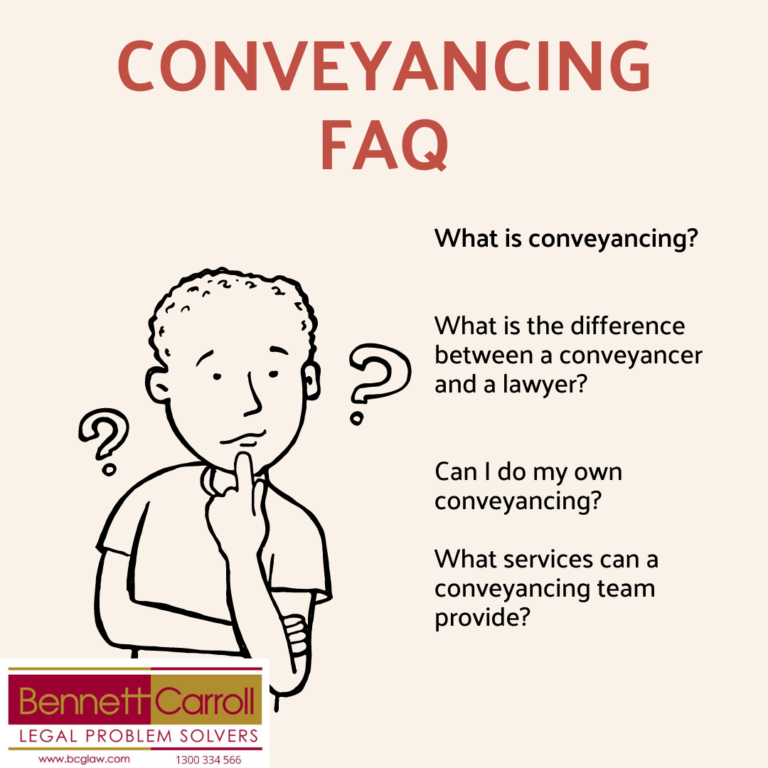
What is conveyancing?
Conveyancing is the legal process of transferring title (legal ownership) of property from one person to another. Ordinarily, the process begins when a contract of sale is signed. The process ends once ‘settlement’ occurs, which involves the handover of money for the title, and the relevant authorities have been notified.
What is the difference between a conveyancer and a lawyer?
The term ‘conveyancer’ is an informal term in Queensland for a paralegal who performs conveyancing work. In Queensland, only registered law firms are able to charge for conveyancing services. Conveyancers work for a registered law firm and are experts in property ownership transfers, as they typically deal with conveyancing on a daily basis. As conveyancers do not hold any legal qualifications, they are not authorised to provide clients with legal advice.
Solicitors are legal officers, admitted to the Supreme Court, who also hold a current practising certificate issued by the Law Society. Solicitors may specialise in any number of legal areas. Solicitors are not typically involved in the conveyancing process beyond playing a supervisory role, though solicitors may become involved in more complicated conveyances and can provide legal advice at any stage of the conveyancing process where required.
Can I do my own conveyancing?
Conveyancing is complex, delicate and important. The time and cost-saving benefits advertised with DIY conveyancing kits are often misleading. Conveyancing in Queensland is regulated by a host of legislation and therefore gives rise to a number of legal intricacies. The expertise that conveyancers provide in buying or selling your property is likely to save you time in the short-term, and prevent you from incurring thousands of dollars in costs to fix mistakes that might be made by attempting the process yourself.
What services can a conveyancing team provide?
Conveyancers can assist you in buying or selling land, subdividing land or changing details on the title (such as name, easements or tenancy). Conveyancers conduct the tedious legal paperwork, as well as the relevant searches to ensure that your interests are protected. For buyers, this process includes title searches and other research to check for:
- easements (legal rights others might have to access or use parts of the property you’re about to buy);
- caveats (legal rights other have to call upon a debt owing to them from the registered owner of the property);
- writs (a right to have a Court’s bailiff evict everyone at the property, change the locks, sell the property at auction and pay the proceeds to someone else);
- leases (a right someone else may have to exclude anyone, even the registered owner, from the property;
- mortgages (a right to sell the property);
- and more.
Commonly, pest and building inspections, pool safety inspections and obtaining finance are tasks that your conveyancer can assist you with. For both parties, conveyancers can check over the sale contract to ensure that your interests are protected and that the document you are about to sign will be legally binding on the other party.
Whether you are buying or selling, our expert conveyancers can assist you every step of the way, giving you peace of mind and ultimately saving you time and money. Contact us today
Call us on or email and safeguard your interests every step of the way.







